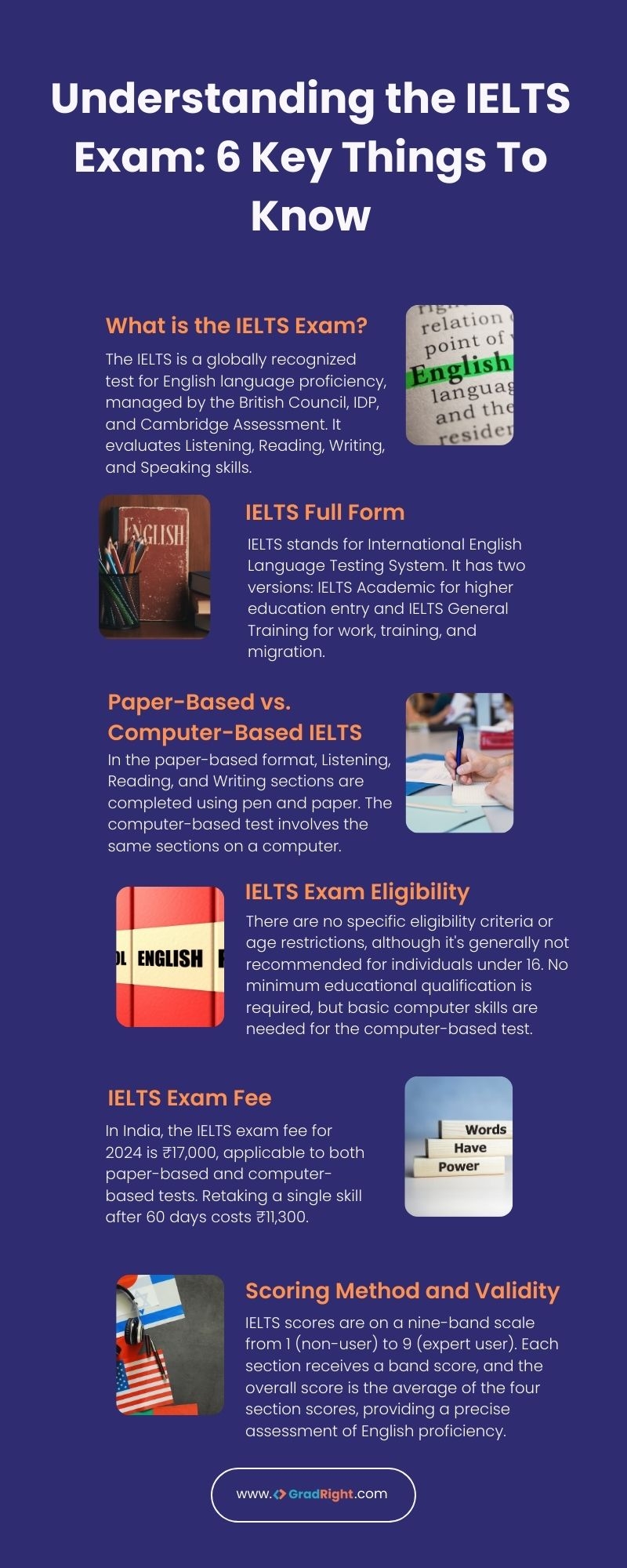The International English Language Testing System (IELTS) is a standardized test designed to assess the English language proficiency of non-native English speakers. It is one of the most widely recognized and accepted English language proficiency tests in the world, used for study, work, and migration purposes.
There are two types of IELTS tests: the Academic test, which is for students seeking higher education or professional registration, and the General Training test, which is for those looking to work or migrate to an English-speaking country.
What are the IELTS?
The IELTS test consists of four main components: Listening, Reading, Writing, and Speaking. Each section is designed to assess a different language skill, and test-takers are evaluated on their ability to understand and communicate effectively in English.
The Listening section involves listening to recordings of native English speakers and answering questions based on the content. The Reading section tests reading comprehension skills through a variety of texts and question formats. The Writing section requires test-takers to express their thoughts and ideas in written form, while the Speaking section assesses spoken communication skills through a face-to-face interview with an examiner.
One of the key features of the IELTS test is its focus on real-life communication skills. The test content is designed to reflect everyday situations and tasks, making it a practical assessment of a test-taker’s ability to use English in a variety of contexts.
Overall, the IELTS test provides a comprehensive and reliable measure of an individual’s English language proficiency. Whether you are a student looking to study abroad, a professional seeking international work opportunities, or an immigrant planning to move to an English-speaking country, achieving a high score on the IELTS can open doors to a world of possibilities.
In conclusion, the IELTS is a valuable tool for assessing English language proficiency and is recognized globally as a reliable indicator of language skills. By understanding the format and content of the test, test-takers can better prepare themselves for success and achieve their academic and professional goals.
